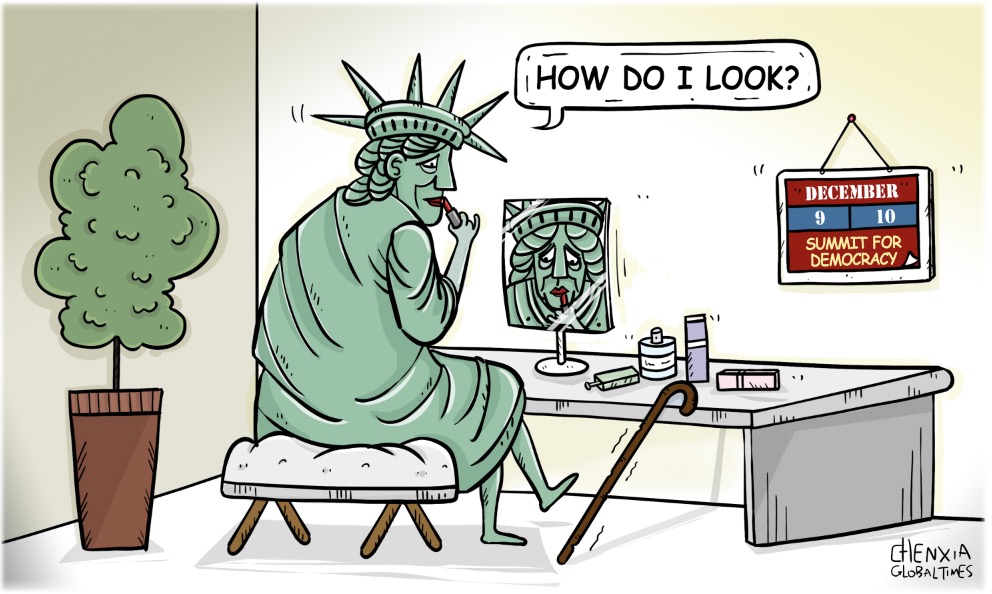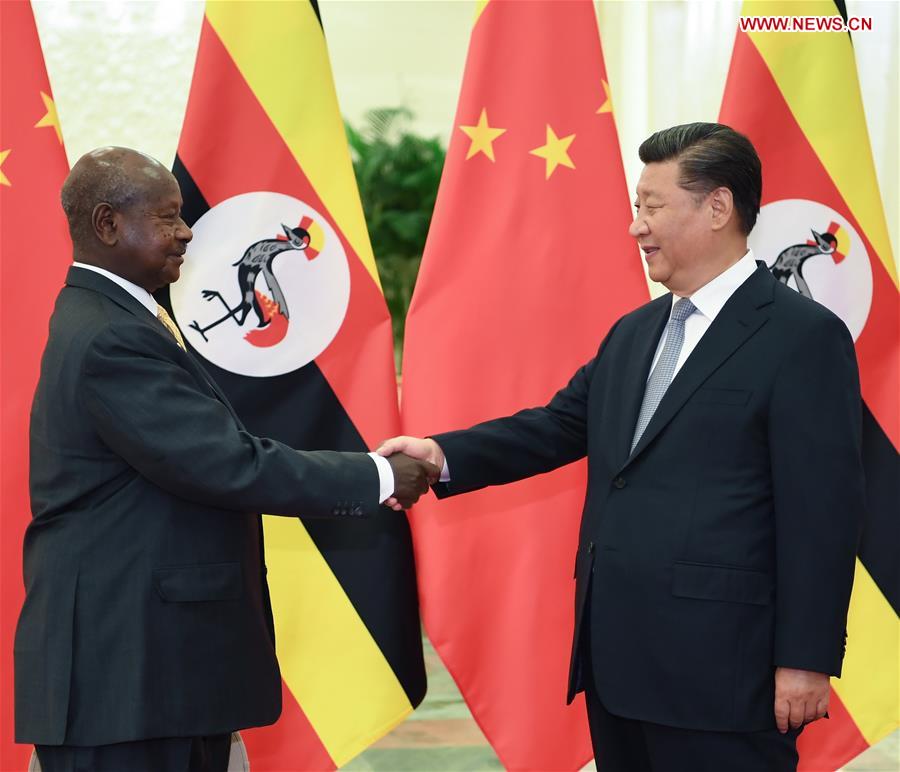The World at a Stand Off

By Moshi Israel
Growing up, many of us watched American “Westerns,” most popularly known as cowboy movies. In these movies, there was always a scene where two men, usually the protagonist and the villain, stood facing each other at a distance, and the one who could draw their gun the quickest would emerge victorious. These moments were commonly referred to as “standoffs.”
In today’s world, where the stakes are far higher than a mere Hollywood script, we find ourselves in a geopolitical stand-off. Despite the alarm bells ringing loudly, attention remains scarce as decision-makers are too busy pointing guns at each other. Only China seems to care about cooperation and the need for normalizing relations among the world’s heavy weights.
In Europe, the war in Ukraine has failed to reach a compromise as numerous young people die aimlessly. The West is set on punishing Russia for its military operations in their neighbor’s territory while the latter is set on protecting itself from NATO’s endless military expansion to its borders. Guns have been drawn and pointed and no one is dropping theirs. The developments on the battle field in Ukraine have had a negative effect on the global economy and specifically on the economies in Europe and the United Kingdom. As I pen this down, the UK has entered a recession by reporting a second consecutive negative quarter of GDP. On the other hand, Russia which was expected to fold under the weight of unprecedented sanctions has defied expectations. However, it is paying the cost with the blood of its young on battlefields in Ukraine.
Furthermore, political tensions are raising between EU allies. Most of Europe has resorted to ‘allegedly ‘using under handed tactics to coerce Hungary into getting in line with the agenda. Turkey is another wild card whose foreign policy is drenched in mind games of confusion which I believe are a reflection of Recep Tayyip Erdogan’s character. No one knows what Turkey might do or better yet what Erdogan might do. Also, one cannot forget about the protests by Farmers and other workers in Poland, Germany, France and the Netherlands. The Polish in particular have problems with special treatment for Ukrainian refugees and cheap Ukrainian grain that is devaluing the efforts of the local farmers. There have been intermittent squabbles between Ukraine and Poland but relations remain largely stable, at least for now.
In the Middle East, the war in Gaza has become a dividing factor within the international community. Israel has used what most have deemed excessive force in response to the Hamas terror attack on October 7th. The stories and pictures from this part of the world are painful to watch. The war is being carefully managed so as not to turn into a wider war regional war. We have Israel, Palestine, Iran and its proxies in Lebanon, Iraq and Syria, the Houthis in Yemen, the United States and a few willing allies, the Arab league, and Russia all pointing guns at each other. On the other hand, China is asking everyone to calm down in the region.
Furthermore, South Africa has prominently taken Israel to the International Criminal Court (ICC) on charges of genocide, sparking a heated exchange between the two nations. As anticipated, the ICC’s response was not definitive, underscoring the complexity of these issues that often transcend legal proceedings. On a less intense note, the ICC has been commendable in its pursuit of justice, particularly in holding warlords and dictators accountable across regions such as Africa, Eastern Europe, the Middle East, and South America. It’s notable that major world powers have not ratified the court’s jurisdiction, perhaps suggesting that they consider themselves beyond its reach, reserved for ordinary individuals.
Top of Form
In Africa, everyone seems to develop sudden amnesia when its people are dying. Sudan, South Sudan, Tigray and the DRC continue to be valleys and deserts of death. Some of these conflicts are triggered by external factors and influence. The endless massacres do not serve the interests of the African continent. The continent is a constant battle ground and backyard for great power struggles. Additionally, we have the dramatic series of coups in the Sahel belt. Mali, Burkina Faso, Niger, Guinea and Gabon have had military coups. Experts say, that Tunisia, Chad and Sudan had constitutional coups. Who are we to judge, let’s leave the nuances to the experts. However, this much is clear, most of these coups are internally popular and the common theme has been kicking out neo-colonial regimes that are deemed to be serving the interests of foreigners at the expense of the citizens. France has come up several times in these accusations. No one knows where all this is headed…but the guns are pointed.
When examining the United States, we encounter a complex entity akin to the mythological Cerberus, with three distinct challenges. Firstly, there are domestic political issues, secondly, concerns arise regarding US foreign policy, and finally, there’s the matter of US relations with the world’s second-largest economy. Internally, the US grapples with significant division. The political landscape is sharply split between the left and right wings. Progressives advocate for reform, while conservatives prioritize maintaining traditional values. Yet, both sides are influenced by a neoliberal ideology at their core, with only the fringes deviating from this norm. On the left, the fringe is represented by progressive socialists, often branded as “communists” by the right. Conversely, on the right, the fringe is perceived as the “MAGA right,” which the left tends to label as “fascist racist extreme MAGA conservatives.” If tensions persist between these factions, civil unrest within the US could be imminent. However, amidst this turmoil, there exists a dominant neoliberal core that has thus far maintained stability, despite being criticized by both the extreme left and right, and often referred to as the “uni-party.”
The Uni-Party is what has kept American foreign policy consistently antithetical to world peace. This includes interventions in foreign regimes, engagement in proxy wars for dominance, financial exchanges for political allegiance in developing nations, as well as conflicts against ideologies such as Islamic extremism, communism, and fascism. Notably, domestic issues in the US frequently spill over into global affairs, with US political decisions profoundly influencing international realities. Any internal discord within the US thus inherently poses a risk to global stability.
Tensions between the US and China are rapidly becoming tensions between the collective West, G7 and BRICS+. On the economic scale, Japan entered a recession alongside the UK. Japan has lost its global economic rank to Germany. These recessions have weakened the G7 economically as compared to BRICS+ economies. Currently, BRICS+ countries have a higher GDP in terms of purchasing power parity (PPP) than the G7. And the gap keeps increasing. This means nothing but guaranteed competition that will also put the world on its toes and guns will eventually be drawn.
The pressing question at hand is the significance of these developments and where they ultimately lead. Speculation is inevitable as we navigate this complex landscape. What is clear, however, is that the world finds itself in a scenario reminiscent of a ‘Western’, where every party seems poised for a shootout. Geopolitically, we’re at a standoff, and it seems only a matter of time before tensions escalate into action.
The Writer is a Senior Research Fellow at Development Watch Centre.
related publications
DWC
Development Watch Centre
Kampala - Uganda
ADDRESS
Plot 212, RTG Plaza,3rd Floor, Office Number C7 - Hoima Road, Rubaga
CONTACT
+256 703 380252
info@dwcug.org



